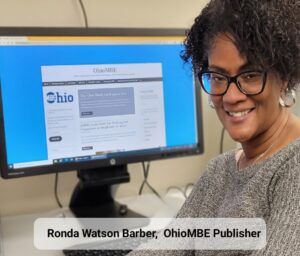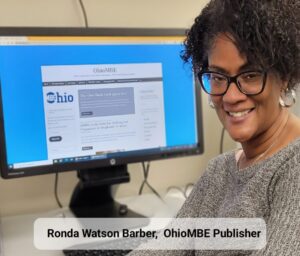
By Ronda Watson Barber
OhioMBE Publisher
I recently received the LEDE (Locally Economically Disadvantaged Enterprises) spending numbers from Columbus City Schools for the last school year, and like many others in the community, I don’t believe them. The district claims to have spent $31,155,140.60 with LEDE vendors—15% of its controllable budget of $204,805,059.38. But these numbers don’t add up.
It’s ironic—and deeply suspect—that the spending numbers for Black and white vendors are nearly identical:
- African-American Vendors: $12,726,816.79 (41% of LEDE spend)
- Caucasian Vendors: $12,688,587.96 (41% of LEDE spend)
How is it possible that these figures are so evenly split when I have repeatedly pointed out that white companies receive far more contracting opportunities than Black companies? The district serves a predominantly Black student population, yet Black vendors consistently face barriers to participation. Without a proper tracking system in place, these numbers feel manufactured.
The district cannot even tell you its LEDE spend at any given time because it lacks a reliable tracking system. Instead, they compile a report in October or November of the following year. This delay makes it impossible for officials to know whether they’re meeting the district’s stated goal of 20% LEDE spend. To make matters worse, the report isn’t segmented by department, leaving no way to determine which areas are succeeding and which need improvement.
Adding to this dysfunction, the contracting compliance software that could have solved these issues was canceled under the Angela Chapman administration. A non-supplier diversity expert made the decision to terminate the contract because staff weren’t required to use the program. The software is successfully used by the City of Columbus, COTA, Columbus Airports, National Church Residences, and even the Columbus Zoo. Yet, Columbus City Schools deemed it unnecessary, effectively abandoning a critical tool for accountability and transparency.
Consider this: during the 2022-2023 school term, the district’s LEDE spend was around 5%. Now they claim it’s 15%. How did that happen without any noticeable change in procurement practices or policy enforcement? I want to see the detailed numbers behind this report. Unfortunately, the district’s public records department has not been helpful when I or others in the community have requested information. They claim our request is not responsive. Transparency remains a glaring issue.
And then there’s the most absurd claim in the report: No women are contracting with the district. Zero. Is the district really saying that not a single woman-owned business is participating? This is not only implausible but a clear indicator that the district’s processes are broken.
Thankfully, the board’s internal auditor is currently auditing the LEDE program and purchasing department. I strongly believe they should also audit these current LEDE numbers. Without such scrutiny, how can the community trust these figures?
Let’s also not forget other glaring disparities:
- Hispanic Vendors: $4,192,424.79 (13% of LEDE spend)
- Asian Pacific Vendors: $141,385.48 (<1%)
- Female and Native American Vendors: $0.00 (0%)
Columbus City Schools continues to disrespect Black vendors while expecting the Black community to bear the brunt of rising tax levies. Why is legislation routinely forwarded by the Chapman administration to the board without Black LEDE participation? Why does the board vote to approve contracts devoid of Black vendors?
If Columbus City Schools is serious about equity, it must:
- Audit the Numbers: Conduct a full audit of the current LEDE report and address any discrepancies.
- Reinstate a Compliance Program: Bring back the contracting compliance software and require all staff to use it.
- Provide Transparency: Release the detailed numbers behind the report and implement a real-time tracking system to monitor LEDE participation.
- Segment Reporting by Department: Identify areas of success and need to allocate resources effectively.
- Reinvest in the Black Community: Actively prioritize contracting with Black-owned businesses to reflect the district’s demographics.
- Improve Public Records Accessibility: Make it easier for the community to access detailed procurement data.
The Black community deserves better. We deserve transparency, investment, and action—not lip service and questionable numbers. Columbus City Schools must address these disparities immediately, not just for the sake of policy compliance, but to honor the trust and support of the community it claims to serve. Anything less is unacceptable.
just my thoughts…rwb
Discover more from OhioMBE
Subscribe to get the latest posts sent to your email.
